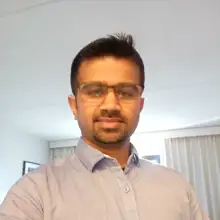
Intelligent Care Gap Closure and Enhance Patient Engagement leveraging Digital Technologies
Digital technologies such as GAI, and IoMT have the potential to transform patient engagement and bridge critical care gaps.
A comprehensive approach to improve healthcare outcomes by harnessing the power of emerging technologies.
In the realm of healthcare, the fusion of digital technologies with traditional medical practices has ushered a new era of patient care. Among these technologies, GAI and IoMT (Internet of Medical Things) stand out as potent tools capable of revolutionizing patient engagement and bridging crucial care gaps. By harnessing the power of these innovations, healthcare providers can optimize outcomes, improve efficiency, and empower patients to focus on their well-being like never before.
Understanding the Landscape
The concept of patient engagement transcends mere participation in healthcare processes; it embodies a collaborative partnership between patients and providers, where both parties actively contribute to achieving optimal health outcomes. However, achieving continuous patient engagement is often hindered by care gaps - disparities between recommended healthcare practices and the care patients actually receive.
Closing these gaps requires a multifaceted approach that addresses various barriers, including limited access to healthcare services, fragmented communication, and inadequate patient education. Here, digital technologies emerge as game-changers, offering innovative solutions to streamline processes, facilitate communication, and empower patients with personalized insights and interventions.
Leveraging GAI for Personalized Care
GAI, fueled by advancements in artificial intelligence and genetic profiling, holds immense potential in delivering personalized healthcare solutions tailored to individual genetic predispositions, lifestyle factors, and medical history. By analyzing vast datasets encompassing genetic information, clinical records, and lifestyle habits, GAI can generate actionable insights that enable healthcare providers to offer targeted interventions and preventive measures.
Through predictive analytics, GAI can forecast disease risks and identify preemptive measures to mitigate them, for patients to adopt proactive health management strategies. Moreover, by integrating with electronic health records (EHRs) and wearable devices, GAI facilitates seamless data exchange, enabling real-time monitoring and personalized feedback to both patients and providers.
IoMT: Transforming Care Delivery
IoMT encompasses a network of interconnected medical devices, wearables, and sensors capable of capturing, transmitting, and analyzing health-related data in real-time. From wearable fitness trackers monitoring physical activity to smart glucose meters tracking blood sugar levels, IoMT devices offer unparalleled insights into patients' health statuses, enabling early detection of anomalies and timely interventions.
By leveraging IoMT, healthcare providers can remotely monitor patients' vital signs, medication adherence, and health progression, thereby reducing the need for readmissions. IoMT also facilitates proactive care management through automated alerts and notifications, prompting timely interventions and preventing adverse events.
Synergizing GAI and IoMT for Optimal Outcomes
The true transformative potential lies in synergizing GAI and IoMT to create a comprehensive ecosystem that seamlessly integrates genetic insights with real-time health monitoring and personalized interventions. By combining genetic predispositions with real-time health data, healthcare providers can tailor interventions to address patients' unique needs and preferences, thereby maximizing engagement and adherence.
Furthermore, the integration of GAI and IoMT facilitates precision medicine initiatives, wherein treatments are customized based on patients' genetic profiles, biomarker data, and lifestyle factors. This targeted approach not only enhances treatment efficacy but also minimizes adverse effects, thereby improving patient satisfaction and quality of life.
Overcoming Challenges and Ensuring Ethical Use
Despite their immense potential, the widespread adoption of GAI and IoMT is not without challenges. Privacy concerns, data security risks, and ethical considerations surrounding genetic testing and data sharing necessitate robust regulatory frameworks and stringent privacy protocols to safeguard patients' rights and confidentiality.
Moreover, addressing the digital divide and ensuring equitable access to these technologies is paramount to prevent exacerbating healthcare disparities. Efforts to promote digital literacy and bridge infrastructure gaps are essential to ensure that all patients can benefit from these innovations, regardless of socioeconomic status or geographic location.
Conclusion
The convergence of GAI and IoMT offers unprecedented opportunities to enhance patient engagement, close care gaps, and revolutionize healthcare delivery. By harnessing the power of genetic insights, real-time health monitoring, and personalized interventions, healthcare providers can deliver tailored care experiences that empower patients to actively participate in their health journeys. However, realizing this vision requires concerted efforts to address regulatory, ethical, and accessibility challenges, ensuring that these transformative technologies are deployed responsibly and equitably for the betterment of global healthcare.
We at Tietoevry, are well equipped with a combination of digital technologies and extensive Healthcare expertise to provide customized healthcare solutions to our customers.
For queries and questions - please reach us at info.usa@tietoevry.com.




